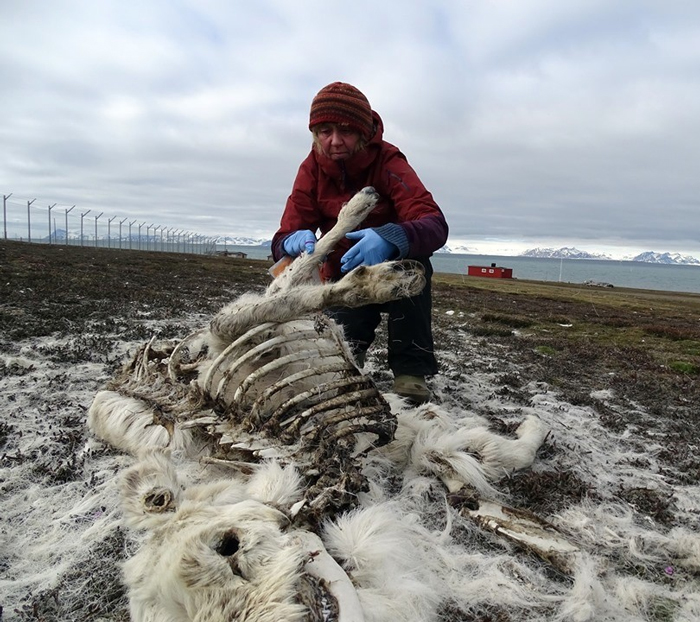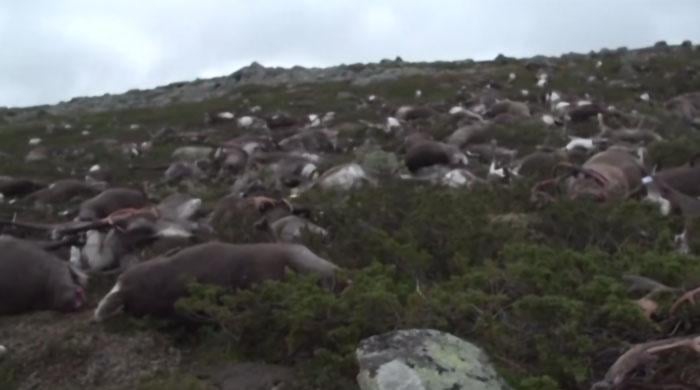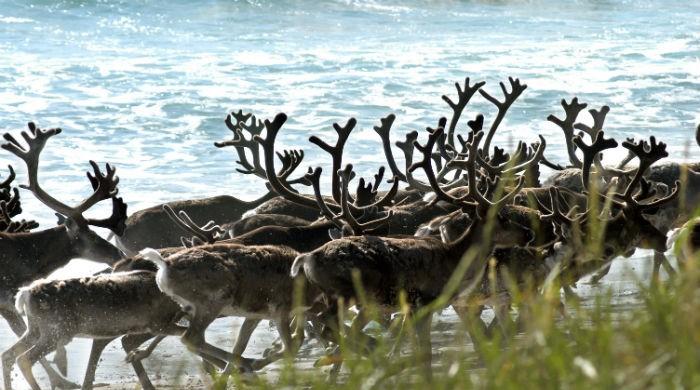Norway institute says 200 reindeer died due to twice-as-fast climate change in Arctic
Norway's Norsk Polarinstitutt says around 200 reindeer were believed to have starved to death last winter, hinting at climate change in the Arctic
August 01, 2019

OSLO: Some 200 reindeer have been found dead from starvation in the Arctic archipelago Svalbard, an unusually high number, the Norwegian Polar Institute — or Norsk Polarinstitutt — said Monday, pointing the finger at climate change.
During their annual census of the wild reindeer population on the group of islands in the Arctic ocean, about 1,200 kilometres (746 miles) from the North Pole, three researchers from the polar institute identified around 200 deer carcasses believed to have starved to death last winter.
Ashild Onvik Pedersen, head of the census, said the "high degree of mortality" was a consequence of climate change, which according to climate scientists, is happening twice as fast in the Arctic as the rest of the world.
"Climate change is making it rain much more. The rain falls on the snow and forms a layer of ice on the tundra, making grazing conditions very poor for animals," she told AFP.
In winter, Svalbard reindeer find vegetation in the snow using their hooves but alternating freezing and thawing periods can create layers of impenetrable ice, depriving the reindeer of nourishment.
According to Onvik Pedersen, a comparable death toll has only been recorded once before — after the winter of 2007-2008 — since monitoring of the reindeer population started 40 years ago.
The increased mortality is also due in part to a significant increase in the number of reindeer in the Norwegian archipelago. That is partly thanks to climate change and the warmer summers, meaning more individuals compete in the same grazing areas.
Pedersen further mentioned that she believed these mass deaths exemplify how — even in remote areas untouched by humans — climate change is having a major effect on wildlife, according to Huffington Post, which cited her interview with a Norwegian media outlet, NRK.
“It is scary to find so many dead animals. This is a terrifying example of how climate change affects nature. It’s just sad,” she told NRK.
The Huffington Post further went on to highlight a 2016 research report presented to the British Ecological Society, which found that "the rising temperatures meant female reindeer were able to gain more weight in summer and conceive more calves.
"Come winter, however, heavy rainfall would freeze the grass, meaning the pregnant reindeer would either lose their pregnancies or give birth to lighter young.
"Over a 16-year survey, reindeer on Svalbard got an alarming 12% lighter," the publication wrote.
Since the 1980s, the number of reindeer has doubled in Svalbard and now stands at around 22,000, according to the Norwegian Polar Institute.












